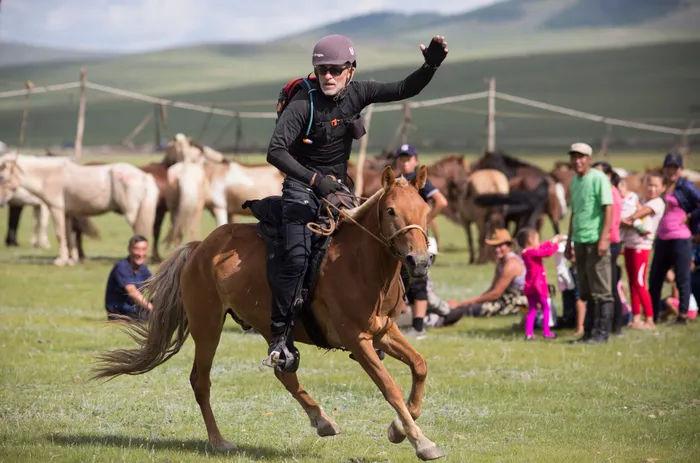SPCA attacks Wild Coast race as cruel to horses

Barry Armitage, co-founder of Race The Wild Coast has ridden the famous 1 000km Mongol Derby three times, winning it last year. This year’s race starts today until next Saturday. Barry Armitage, co-founder of Race The Wild Coast has ridden the famous 1 000km Mongol Derby three times, winning it last year. This year’s race starts today until next Saturday.
The National Council of SPCAs (NSPCA) expressed concern this week over the welfare of horses which took part in the recent Race The Wild Coast 350km endurance race.
But the organisers have hit back, saying the safety and care of horses and riders were “paramount” during the race.
In a press release issued this week, the NSPCA said four horses had to be disqualified “due to injuries sustained in the race” and that “the race organisers employed six veterinarians, not all of whom had equine experience”.
It also stated that the inaccessible terrain made it difficult to assess conditions and provide instant intervention.
“Other concerns included inexperienced riders who were unfamiliar with the tack provided, while some riders lacked compassion when handling the horses, and the late start and late finish resulted in night racing on unfamiliar and dangerous terrain, placing the horses and riders at risk of injury,” said the NSPCA.
It added that with large river crossings “some riders were not competent to swim the horses” and that “this race is unnecessary, offering no value to the animals and simply should not happen”.
The race organisers responded by saying the team of six vets all had “extensive equine experience”, with horses being assessed before the race, 12 compulsory checks during the race and post-race monitoring.
“The horses used during the race are highly trained equine athletes both used to, and very capable of, handling the challenges of the Wild Coast.
“Only riders with relevant experience are accepted to participate,” said the organisers, adding that during the 12 vet checks the horses were examined, allowed to eat and drink for 40 minutes, and there was a 12-hour overnight rest period for each competing horse.
With regard to the injured horses, they said that three horses were “vetted out” of the race, meaning the vet did not allow the horse to continue.
“Two horses were excluded for mild lameness due to stiffness in the hindquarter and one due to metabolic issues.
“All three horses were sound after treatment,” the race organisers insisted.